8 Holistic Ways To Relieve Your Spring Allergies
Picnic's personalized treatment plan helps a ton!
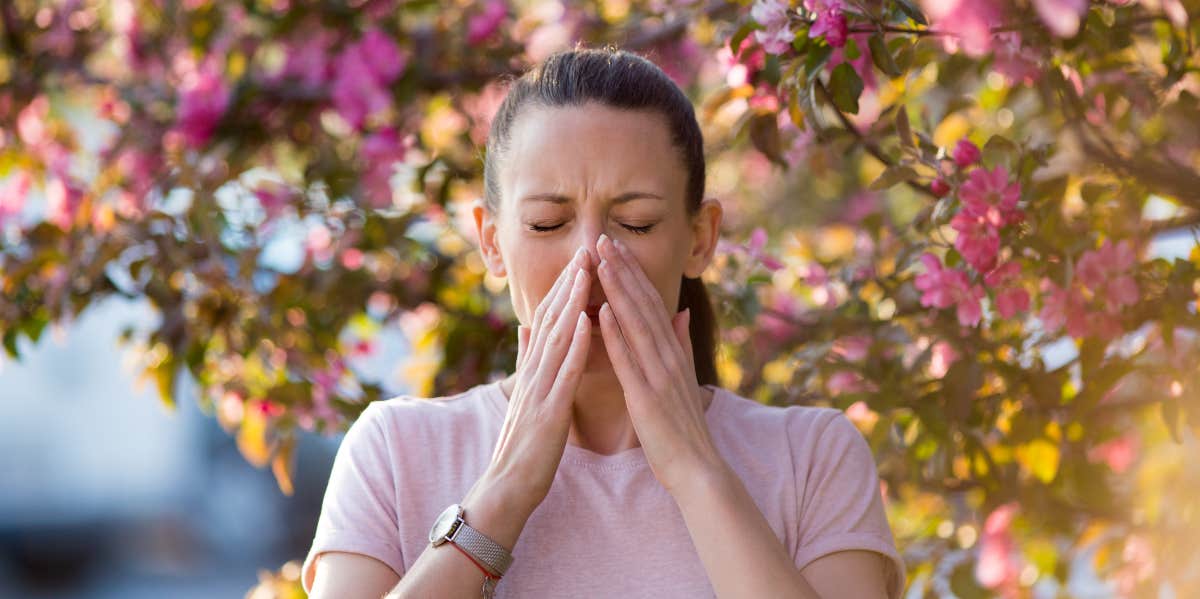 Budimir Jevtic / Shutterstock
Budimir Jevtic / Shutterstock With winter nearly over and the new year in full swing, it’s time to get ready for spring. And you know what that means: allergy season.
Luckily, Picnic Allergy’s personalized allergy treatment is designed to fit your needs and reduce symptoms to make the spring allergy season that much more bearable.
To prepare yourself for the upcoming allergy season and get some relief, take Picnic's Allergy Quiz to figure out the perfect treatment plan and blow the rest of your allergy symptoms away.
Take the allergy quiz and receive 33% off your first order!
How Picnic’s Personalized Treatment Plan Works
Picnic Allergy’s personalized treatment plan sends you through a series of allergy questions to figure out what kind of symptoms you’re experiencing, at what times of the year, what has worked for you in the past, and how well those treatments have worked.
Picnic assists in picking the right medication for you — all approved by professional allergists. They also ask whether or not you want to try new methods of allergy relief, and suggest those based on whatever you’re looking for.
Here's how the process works:
1. Fill out a quick questionnaire about your allergy symptoms and treatment history. Picnic will work side by side with allergists to make sure your treatment plan is tailored to your personal preferences.
2. Picnic Allergy's result is a treatment plan made using clinically-proven medications for your specific symptoms, based on your unique history and needs.
3. Then, your personalized treatment plan is delivered directly to your door, so there's no need to go to a drugstore!
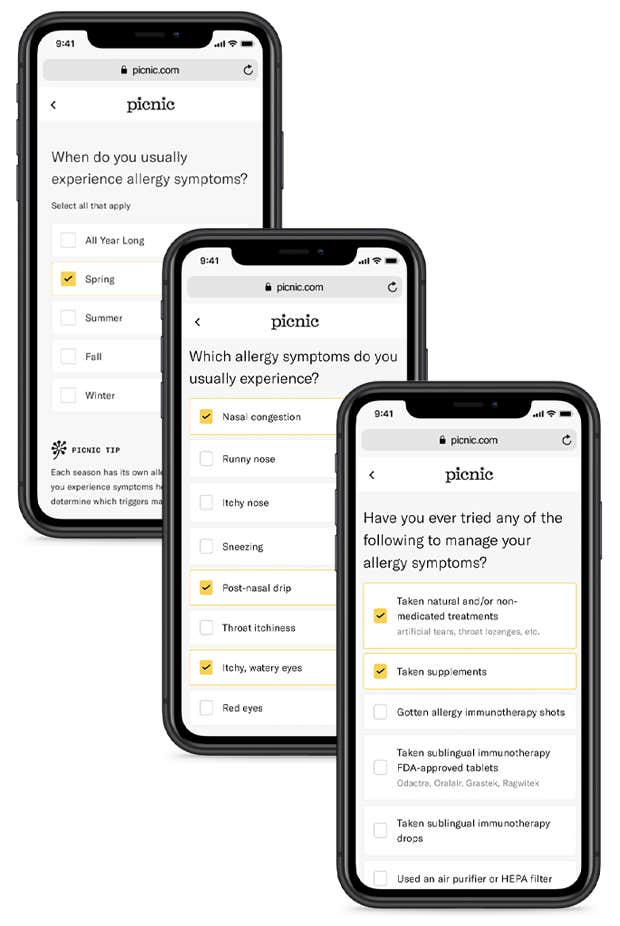
With Picnic Allergy, you also get unlimited access to a doctor, treatment packs delivered right to your doorstep, and tips to manage your symptoms. With options of receiving a 1-month pack or a 3-month pack, there’s more than enough to get you through allergy season.
Order today and receive 33% off your first order!
How You Can Prevent Allergies Before They Attack
The best way to fight against seasonal allergy symptoms is to prevent them before they can trigger an allergic reaction.
That means avoiding allergy triggers like dust mites, pet dander, mold spores (which are also common outdoor allergens), and those easily avoidable indoor allergens that are much easier to control and get rid of.
The best way to fight any outdoor allergens is by limiting exposure to them and keeping your windows closed. That means keeping track of pollen levels outside, or downloading an app for forecasts for hay fever, grass pollen, ragweed pollen, and tree pollen for different times of year.
Also, something as simple as changing your clothes often during allergy season or taking a shower after going outside can go a long way to ease allergy symptoms.
Since allergies can take time to form and even longer to go away, it’s important to start your allergy treatment as soon as possible (2-4 weeks before symptoms start).
Picnic’s personalized treatment plan will provide you with medicine and methods to help reduce your allergy symptoms and live an easier life. And you can receive 33% off your first order.
How To Relieve Allergy Symptoms Holistically
Alongside specific medical treatments, there are still many home remedies for allergies available. And for chronic allergy sufferers, it's yet another way to relieve those uncomfortable symptoms.
1. Nasal irrigation
Nasal irrigation is when you pour a saline solution into one nostril and let it travel through your nasal passages into the other nostril while it picks up mucus and allergens, like pollen, along the way.
People use nasal irrigation to clear up nasal congestion or fight a runny nose because it removes allergens that cause these symptoms. But it also restores moisture and eases inflammation of the mucous membranes that line your sinuses and cause congestion.
While people typically use saline solution, some opt for nasal sprays that can get the job done easier.
2. Acupuncture
Acupuncture is a traditional Chinese medicine (TCM) in which hair-thin needles are inserted into certain points on your body that target these energy lines called Meridians in which qi flows.
In the same way that white blood cells are the part of your immune system that protect your body from infection, defensive qi can fight against a lot of the common allergy symptoms.
When there’s a lack of defensive qi, you can experience swelling, watery eyes, runny nose, sneezing, and symptoms associated with allergic rhinitis.
While evidence is scant, some studies have shown that the use of acupuncture therapy, alongside medical advice from your primary physician and prescribed allergy medications, has shown positive results for curbing a lot of those allergy symptoms.
Always remember to seek acupuncture therapy through a licensed professional and not by doing it yourself.
In addition to trying acupuncture, you can also opt to pair this treatment with an antihistamine. Picnic Allergy has options like Loratadine or Fexofenadine, daily oral antihistamines, for maximum relief.
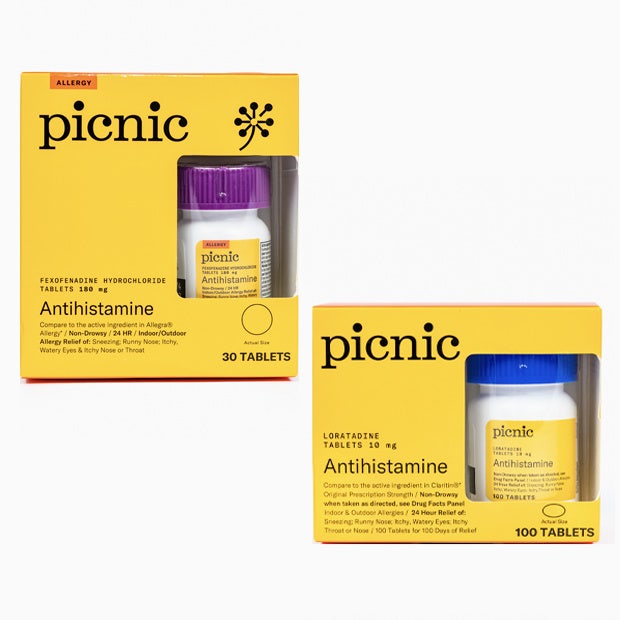
3. Dehumidifiers
Dehumidifiers can get rid of those pesky indoor air allergens we mentioned earlier — like mold spores, mildew, and dust mites — by removing the humidity in the air that causes them to form due to damp conditions.
Mold, mildew, and dust mites can commonly trigger allergy asthma or regular asthma symptoms like itchy, watery eyes, but a dehumidifier will help relieve the symptoms of allergens.
4. Essential oils
One of the more natural remedies for potential allergy relief is the use of essential oils.
With a diffuser, you can diffuse oils into the air, which provide you with many benefits aside from just allergy relief. They can also be applied directly to the skin when diluted, used in bath products, sprayed in the air, or smelled directly from the bottle.
In one study, lavender showed promise in preventing allergic inflammation as well as the enlargement of mucous cells.
Other essential oils used to potentially combat allergy symptoms include eucalyptus, tea tree oil, peppermint, and lemon.
Always make sure you’re getting high-quality products to avoid any unnecessary side effects, and always dilute the oils before applying directly to the skin.
5. Air conditioning
It might sound silly, but your air conditioning can actually do wonders in preventing your allergies from flaring up.
Air conditioning works by taking all of the water from the atmosphere and cooling the air in turn. Can you guess what allergens are? If you guessed that they’re water-soluble, you’d be correct.
There are also special air filters that can help the air conditioning unit do its job even better in preventing allergens from reaching you.
During the warmer months, it’s much better to leave windows closed to prevent any outdoor allergens from coming in. Instead, turn that air conditioner on to keep indoor allergens out!
While air conditioning can help reduce allergy flare-ups, they do tend to dry out your eyes.
To help relieve dry eyes, consider trying Picnic Allergy's Azelastine eye drops, which are prescription-strength eye drops that include both antihistamines and inflammatory inhibitors to clear up red, itchy and watery eyes.
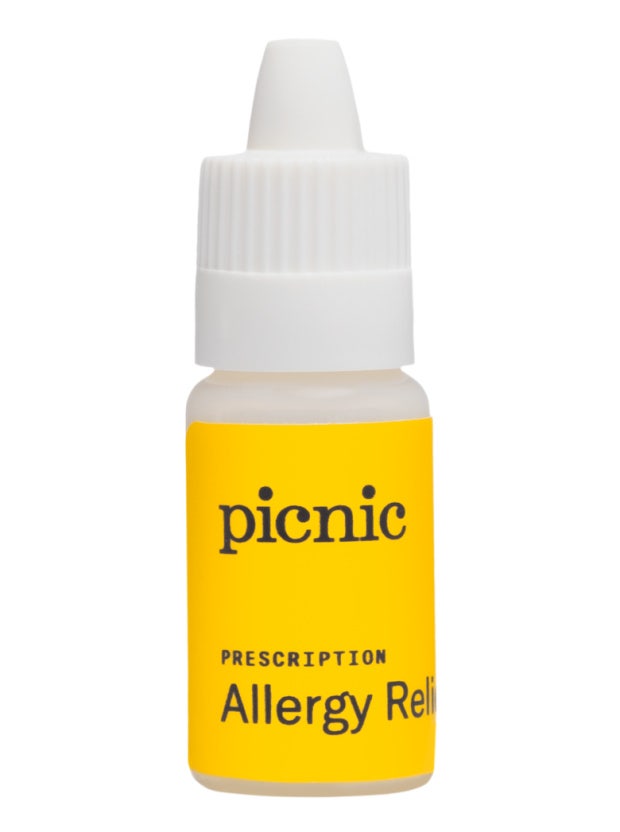
6. Probiotics and vitamins
Probiotics are live cultures that provide several health benefits when consumed.
While bacteria is typically considered to be bad and cause illness, there are a lot of good bacteria that are produced and can be consumed in probiotics.
Research shows that probiotics may have an important role in the prevention and treatment of allergic rhinitis. Lactobacillus GG and L. gasseri are the two most commonly used probiotics to prevent allergies.
While probiotics are live cultures, vitamins are nutrients that our body needs in order to function properly, and some of those vitamins can help prevent allergies from occurring.
Allergens cause the release of histamines which, in turn, cause the common allergy symptoms people experience.
Vitamin C, commonly taken to boost the immune system, does a similar job when it comes to protecting you from allergies. Vitamin C can prevent the formation of histamines, while antihistamines interact with the histamines that have already been produced.
If probiotics and vitamins just aren't working to prevent allergies from attacking, check out Picnic Allergy’s selection of antihistamines.
7. Butterbur
Butterbur, otherwise known as Petasites hybridus, is a marsh plant that has long been used by people for its medicinal properties — most commonly used for its ability to fight migraines.
This plant can be consumed as an oil extract or in pill form, and can be very effective in suppressing allergic reactions.
However, butterbur is also good at reducing the number of histamines and leukotriene that the body produces after being exposed to allergens, according to one study. Another study found that butterbur has similar effects as cetirizine, an antihistamine.
Luckily, Picnic Allergy can provide you with this fast-acting antihistamine!
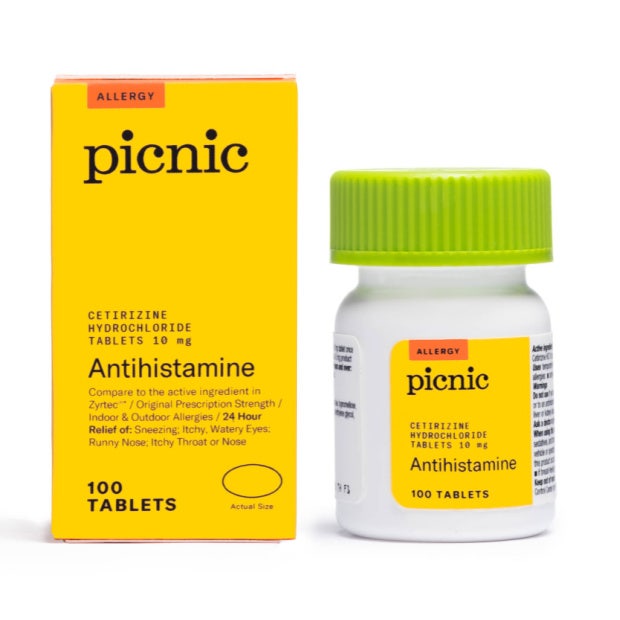
8. Hydration
Those pesky little histamines that we’ve been talking about not only cause allergic reactions to form in your body, but also help regulate your body’s water supply.
Therefore, when your body is dehydrated, it produces more histamines to act as a defensive mechanism in order to preserve the water that’s left in your system.
Something as simple as drinking more water can prevent the extra histamines from being produced, and can reduce allergy symptoms.
-Created in partnership with Picnic Allergy
Isaac Serna-Diez is a writer who covers a wide variety of topics including health and wellness. Follow him on Twitter here.
YourTango may earn an affiliate commission if you buy something through links featured in this article.

